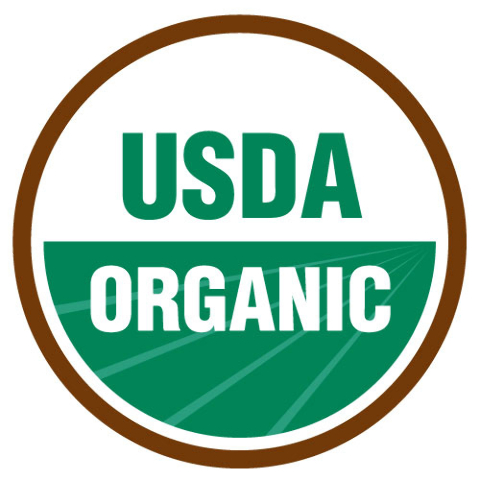Is organic really better?
If someone wants to start an argument, a sure way is to ask a group of horticulturists whether the fruits of organic gardens and farms are really better for people and the environment. Organic produce is often more expensive, but is there enough of a quality difference to make the cost worthwhile?
Before the era of conventional pesticides and fertilizers, virtually all farming was in some way “organic.” Most farms were smaller than they are now, and many farm tasks depended on large amounts of human labor. Once modern agricultural equipment and chemicals came into production, bigger farms became possible. Bringing a crop from seed to market required considerably fewer hands. Yields increased markedly, more so than organic production could equal.
All this helped to lower the cost of food in the United States; the average American spends a smaller percentage of his or her income on food than in any other country in the world. A drawback of this terrific increase in productivity has been a decrease in levels of minerals and protein in the vegetables that are being grown. Researchers believe this might be because larger yields draw more of these minerals or the raw materials to make the nutritional compounds from the soil. If the grower does not replace them, there is less to go around.
There is more to food than simply its cost; there are environmental issues, human nutrition concerns and the search for other plant products that might benefit people. Organic farmers and consumers are certain that conventional horticulture is not as good as following good organic practices.
Conventional agriculture requires inputs of potentially polluting fertilizers and pesticides to be profitable. It also tends to concentrate on producing a limited number of reliable fruits and vegetables. Although this has made agriculture more profitable, it might also have led to a decrease in genetic diversity. For instance, in 1903, there were 338 varieties of muskmelon (cantaloupe) available from seed companies. Eighty years later, there were 27 varieties.
The Food and Agriculture Organization of the United Nations states that 75 percent of crop diversity was lost between 1900 and 2000. Not all authorities agree that diversity has gone down, however. The opposing viewpoint states that hybrids and new introductions have increased the numbers of different crops and seeds.
Many gardeners try to grow their produce organically, not wanting residues of insecticides and herbicides on their food. Avoiding harsh pesticides is one very good choice, and using compost rather than relying on soluble fertilizers is another.
What exactly is “organic” in the 21st century? Although there are organic equivalents of standard fertilizers or pesticides available, growing organically is far more than replacing a conventional fertilizer or pesticide with a more acceptable one. There are hundreds of pages of federal regulations that cover everything from what can go into compost, to what kind of seeds may be used, and much more.
To put it simply, organic horticulture is a holistic approach that uses as few external inputs as possible. It relies on good soils as the source of plant fertility and cultural practices to keep insect pests and diseases to a minimum. Its objective is sustainability: environmental, economic and social.
Sewage sludge and genetically modified organisms are forbidden in organic horticulture. A GMO is the product of a unique form of plant breeding, where a gene from one type of organism is inserted into the DNA of a different one. The most well-known might be GMO corn.
To control a serious insect pest, researchers placed a bacterial gene into corn. That bacteria has been in use for years to control certain larvae. It produces a toxin, harmless to humans, but deadly to caterpillars. The transformed corn now creates that same toxin in all its cells. It is effective on many caterpillars, including the larvae of butterflies. This may be contributing to the decline in Monarch butterflies.
Water pollution is a concern for everyone. Pesticides and fertilizers in groundwater is a serious problem in many agricultural areas. A well-managed organic farm is less likely to be a source of contamination.
Environmental benefits are important, but organic fruits and vegetables might also be more nutritious than conventional ones. Research has had mixed results.
Some, but not all, experiments have found higher levels of vitamin C and certain antioxidants, so important to our health, in organic food.
It makes sense that this could happen. A plant produces these to defend itself against insect damage or disease. If it receives insecticides and fungicides, it does not spend its resources creating defense compounds. An organic plant might protect itself by making larger amounts of those materials.
None of the results is conclusive. It is up to the consumer to decide whether organic food is better.
Angela O’Callaghan is the Social Horticulture Specialist for University of Nevada Cooperative Extension. Contact ocallaghana@unce.unr.edu or 702-257-5581.

















